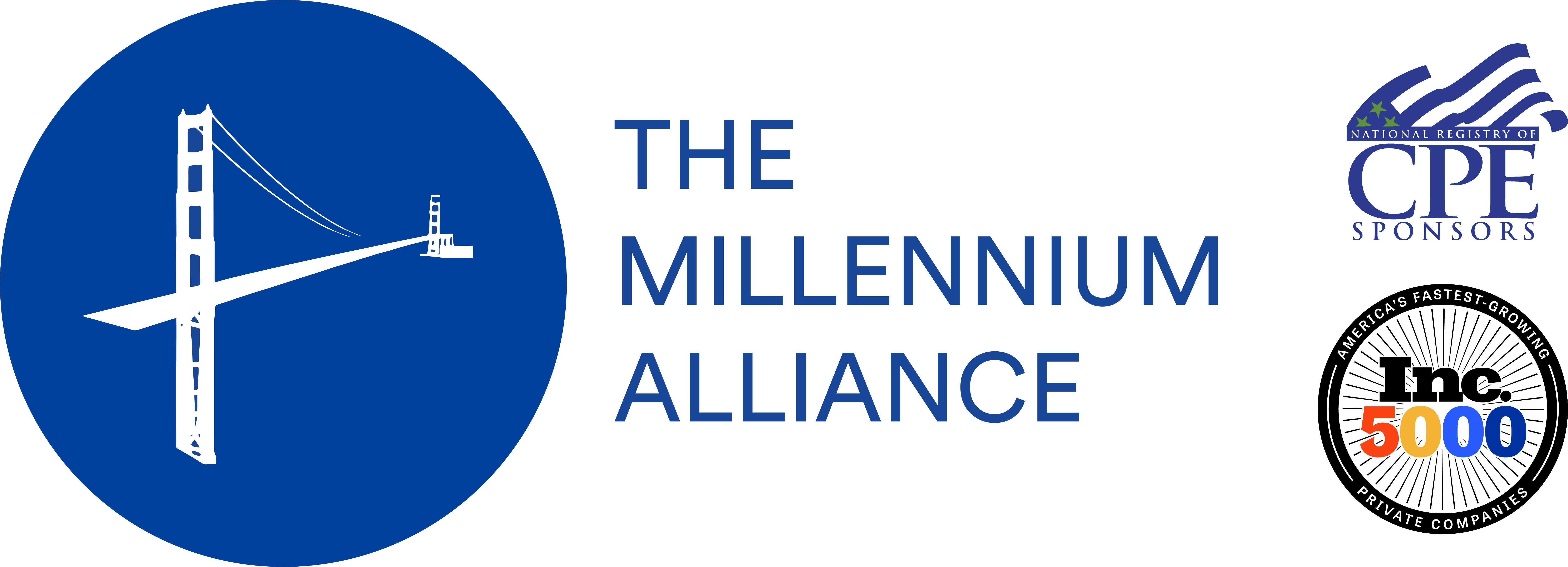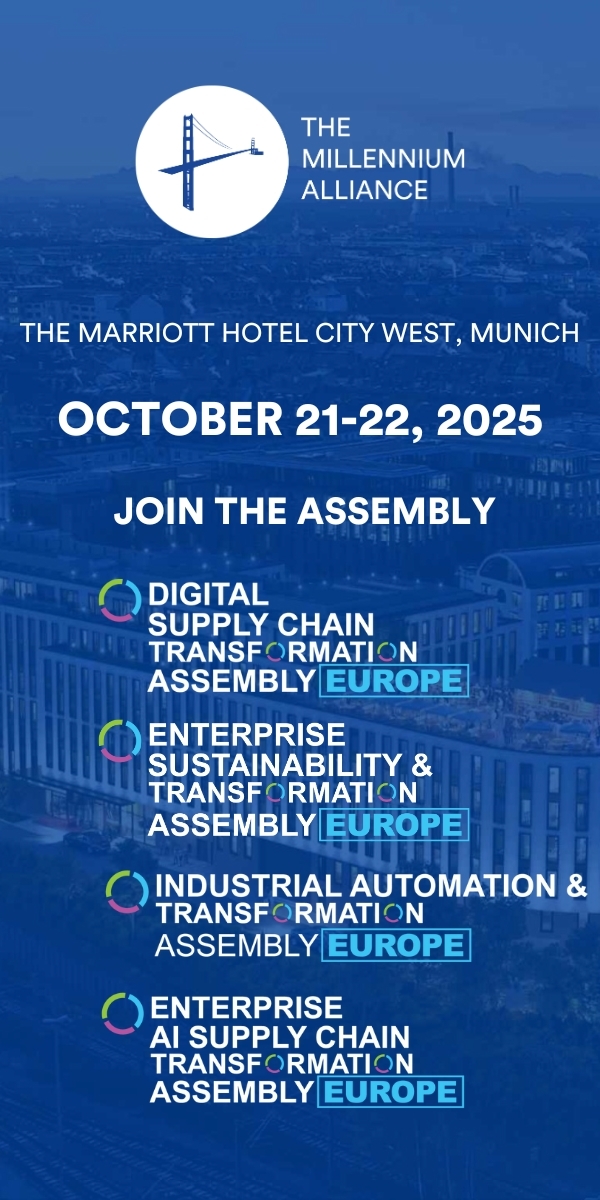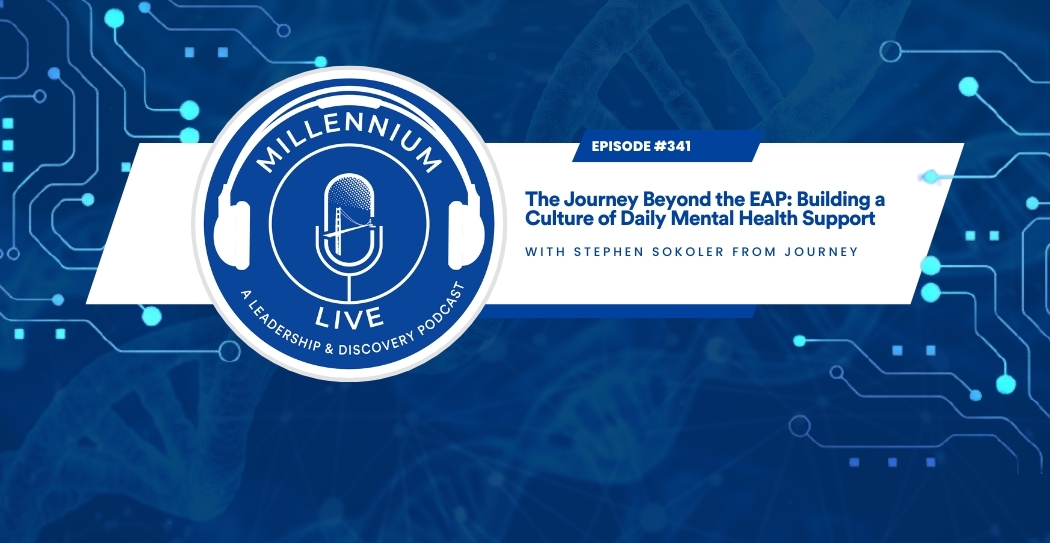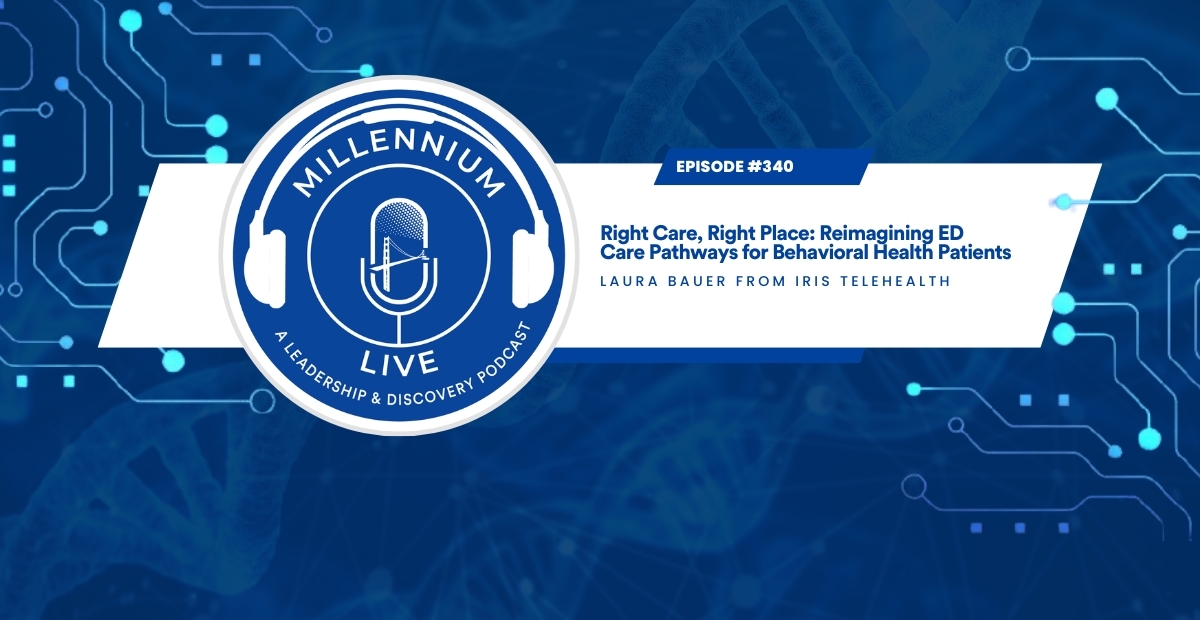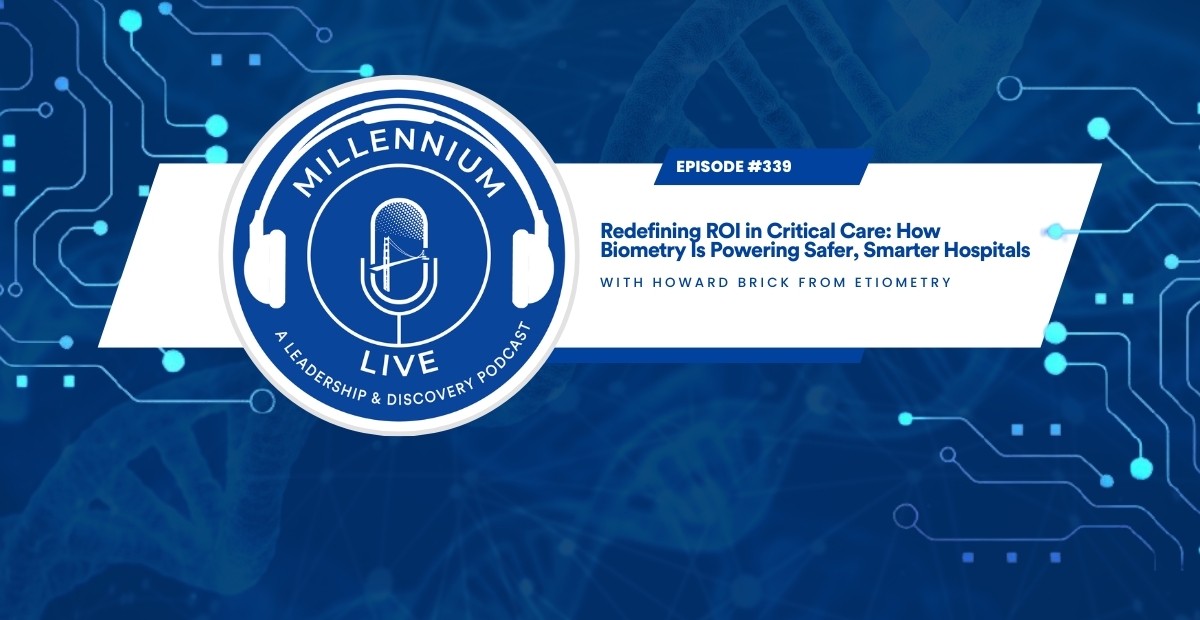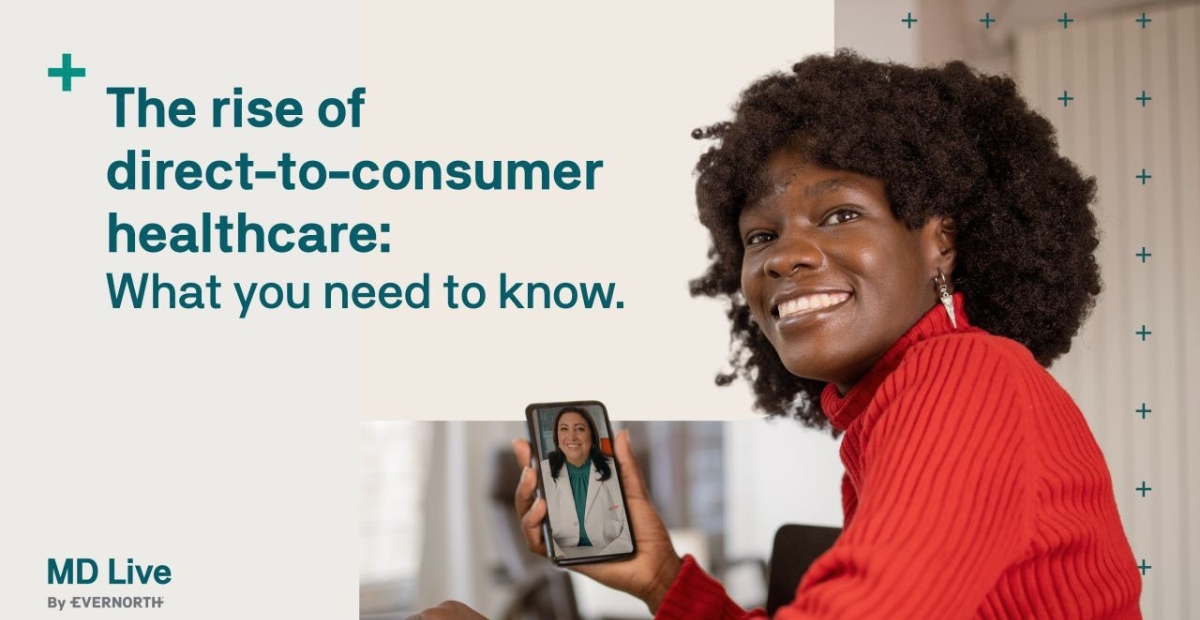Leading up to our Healthcare Payers Transformation Assembly, our featured Thought Leader, Julie Barnes, shared her recent Health Affairs blog post. For a taste of what’s to come at our assembly in December, read the article below!
Written by Julie Barnes, Founder & Principal, Maverick Health Policy
As originally published by Health Affairs on November 12, 2019
The US health care system is finally at a tipping point of much needed and overdue modernization. While it promises a brave new world of streamlined and improved health care, we are facing nothing short of a revolutionary transformation that is based on a tsunami of readily accessible health information and digital tools.
Currently, there is no federal agency, public-private collaboration, or private industry mechanism that is prepared to handle the ensuing activity in its entirety. We need to get a handle on how best to protect our private health care data while also making sure that information is allowed to flow as freely as necessary to improve our delivery system and population’s health. We need a dedicated team of experts who speak the language of both information technology and public policy. We need a new federal agency that has jurisdiction and dedicated staff to oversee health information and the technology that will simplify and operationalize the information.
This need is urgent because of the pending final rules of the Centers for Medicare and Medicaid Services (CMS) and the Office of the National Coordinator for Health Information Technology (ONC). In February, they announced their proposals to make the health care system “powered by technology.” Under the proposed rules, any payer doing business with Medicare, Medicaid, or as a qualified health plan in the federal Marketplaces will have to make health data available electronically by 2020. Individuals will be able to see and send their information anytime and anywhere via third-party apps on their computers and smartphones. The problem is that the rules oversee health plans and health care providers, but there are no rules for the software developers of the consumer-facing apps.
The CMS and ONC rules are causing consternation among health care industry stakeholders, but the goal is worthy. The proposals are designed to ensure that patients will no longer have to argue against redundant and needless procedures because their entire medical histories will be immediately, electronically available no matter where they are or which clinician they are seeing. Providers will be able to get the most holistic view of a patient possible. Payers will be in a much stronger position to engage in value-based contracts with a constant stream of data on patient progress and quality measures.
In short, the new rules will be a game-changer. The comment period is closed, and the final rules could come at any moment.
When you combine these rules with the momentum on health care price transparency mandates, consumerism is no longer a distant vision. People will actually be able to shop for health care.
In the not far distant future, people are going to have the same expectations for health care shopping as they do about grocery shopping. We are comfortable with the location, prices, and even the quality of the products associated with grocery shopping. We don’t think twice about the safety of that bottle of ketchup we purchase. We assume that the ketchup and the plant where it was made was scrutinized by the Food and Drug Administration (FDA). And we know if there is a problem with our ketchup, the FDA will be on it with an investigation and possibly a recall notice or some other warning to the public.
Currently, we have at least two separate federal agencies overseeing health care data. The Department of Health and Human Services (HHS) regulates the interoperability, privacy, and security of health data collected and used by traditional health care stakeholders, and the Federal Trade Commission (FTC) protects consumers from misrepresentation and other harm by technology companies that develop applications and software involving the same health care data. A new cross-jurisdictional agency is needed so that we can rely on experts who understand health policy and the delivery system, and specialists who understand technology and data (and the heightened level of protections they require in the health care field). If we are going to ask people to trust modern tools with their sensitive health data, then there must be an agency that is capable of creating that trust. HHS admits that it does not have jurisdiction over consumer apps, and the FTC has repeatedly said it does not have the internal expertise, the resources, or the appropriate jurisdiction to provide the necessary privacy and security protections for consumers and their data.
What A New Agency Would Do
This proposed agency could work like a seal of approval, like the Energy Star program run by the Environmental Protection Agency, for new software, apps, and vendors that will be handling sensitive health information. Just like dishwashers evaluated by Consumer Reports, apps that handle personal health information should have a similar unbiased review process.
We don’t have to completely reinvent the wheel. Before 1996, Congress had an Office of Technology Assessment (OTA) that did research and analysis on complex scientific and technical issues important to the public. Two members of Congress made a plea earlier this year to revive the OTA. Creating a 21st century version of the OTA, with a prominent arm just dedicated to health data, would certainly be a place to start. Indeed, there is a new proposal from two other US House representatives for a Digital Privacy Agency, and while the bill establishes important enforcement powers, the proposal is focused on protecting any and all data—it would not safeguard health data with any specificity—and perhaps more importantly, it does not ensure that these new protections will not pose a barrier to health data getting where it needs to be for individual health care needs and for public health purposes.
Private-sector, influential players are already working on a privacy and data framework that provides a new agency with a tremendous foundation. POLITICO reported that the American Medical Association, the CARIN Alliance, the Consumer Technology Association, and the Health Information and Management Systems Society have all created their own voluntary privacy standards that vary in size and scope. While this is a good start, we will need more than voluntary standards when the interoperability rules become effective. We need uniformity and broad enforcement authority and more clarity about who is allowed to do what with consumer health data, and we’ll need it at the highest levels.
Why This Is So Important
It is important to recognize that these changes in information flow mean an overall health system transformation. Over the next five years, the pieces of our health care system puzzle—payment and prices, prevention and management of disease, population and public health, where and how care is delivered, medications, and self-care—will start to come together as a very different picture than the one we see today.
Some have voiced skepticism about whether providers, payers, and the federal government will be able to pull this off. Given our slow pace to date to take advantage of modern tools in the health care industry, the concern is understandable. But app developers, their investors, and other interested parties will not ignore this gold mine of data. So much good—better health outcomes, improved profitability, lower costs—can come from making health information readable and accessible for people. But it is also true that this type of unregulated activity invites fraud and privacy breaches and flooding the marketplace with useless tools that will only confuse and frustrate consumers. That’s why even though this all sounds exciting—and the opportunities are great—we have to start planning ahead.
To create the best plan, we need to address the fact that tech and policy experts struggle to speak each other’s language—anyone who’s watched a congressional hearing with a Facebook executive being questioned knows this is painfully obvious. The science and possibilities of things such as artificial intelligence (AI) and machine learning are here, but the federal government has languished in understanding it. We cannot allow the status quo to continue as this opportunity presents itself. We’ve been talking about getting out of our health policy “silos” for so long, and this is the opportune moment to do so. This isn’t just a job for those in health information technology.
Tech gurus will have a treasure trove of information, and there’s no telling the unintended consequences of having all of your health history in the mysterious “cloud”—and that’s not even mentioning nefarious forces that will likely try and infiltrate. Less obvious is the need to anticipate a new federal data privacy law that will likely encompass health data in its protections, which may impede the very flow that the HHS rules are trying to promote. With oversight emanating from two separate entities—the FTC over tech companies and HHS over health plans and providers—we need an earnest conversation about how to create a healthy regulatory dynamic that protects health data while allowing it to be more accessible for the right reasons.
Our Current System Needs This Transformation
Even someone with the most minimal contact with the health care system knows that we don’t have one-stop shopping for health information and that this fact causes extreme inconveniences if not delays, medical errors, or tragedies. There are few tasks more onerous than trying to get medical records from one provider to another. Price comparison and doctor shopping tools are only for those who are lucky enough to have them offered by their health plan or employer, and only if you’re the type of person who will take the time to figure out how to use them and then actually remember to use them when you should. Despite the fact that our health data are some of the incredibly personal information we have, our health care system is one of the least consumer-friendly systems out there.
New digital tools such as wearables, telehealth services, remote monitoring, and other fancy tech gadgets are not just fun toys but pose a real opportunity to make people’s lives healthier and easier. For example, scientists are combining genomics with AI to determine the best possible treatments for ailments, eliminating often painful trial and error. The proposed rules would shift these dynamics into high gear.
Of course, we all know that wearables, tracking devices, and telemedicine aren’t accessible to everyone, our Medicaid population in particular. But think of the population health data possibilities for one of our most vexing populations in terms of health outcomes. About half of Medicaid plans have now shifted to managed care, away from the dreaded fee-for-service model, although many might argue that it’s a shift that’s taken too long almost a decade into the Affordable Care Act. With open data-sharing technologies, insurance programs will have no excuse but to implement plans that emphasize keeping patients out of the hospital, start covering alternative therapies, and investing in healthy behavior programs that could actually see a return on investment—because they’ll know what’s driving patients to seek care in the first place.
It’s time to step into this brave new world, one that we’ve always hoped for in health care: where patients are empowered, health data is in real time, and the whole system no longer feels like a handful of people making decisions behind a curtain. There are challenges ahead—and the safety and privacy concerns are very real—the opportunities are even greater. It’s time to walk forward into the future.
About Julie Barnes
Julie Barnes is a health care policy expert with years of experience helping the private sector navigate federal government activities that impact the health care system. Ms. Barnes is a strategic adviser to organizations that need guidance about federal health policies and how to develop relationships with policymakers and influential advocacy organizations.
As a former policy analyst, health care attorney, and Capitol Hill staffer, Ms. Barnes can inform business strategy and investments in a myriad of health care areas, including health information technology, data privacy and interoperability, value-based care, transparency, health insurance and new payment models, and federal health programs.

